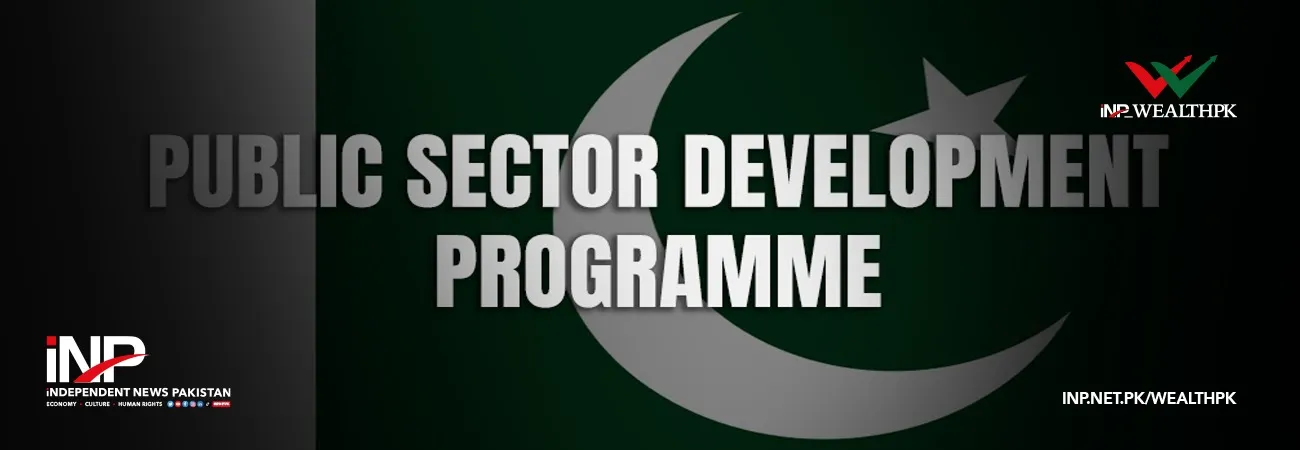INP-WealthPk
By Abdul Wajid Khan ISLAMABAD, May 11 (INP-WealthPK): Noted economists and experts said its time for the government to evolve consensus on the future macroeconomic framework by taking all political parties on board to ensure economic stability. Executive Director at Sustainable Development Policy Institute (SDPI) Dr. Abid Qaiyum Suleri said in an interview that in current circumstances, the government needs to increase prices of petroleum products to reduce the current account deficit, because Pakistani rupee is depreciating, and oil prices in the international market are increasing. He said the government will have to increase petroleum prices by more than Rs30 per litre to absorb the pressure of an increase in oil prices in the international market. The economic expert said the government also has limited room to decrease inflation and increase real income of the people in the prevailing situation, and it also needs to take measures to control fiscal deficit. Although, an increase in petroleum prices will further hit inflation, strengthening the social safety net program is important to protect the low-income segment of society. Dr. Abid said the government will have to divert across-the-board subsidies to only the low-income section of the society. He added that the next challenge for the government will be to prepare a budget for the upcoming financial year, because it is not still clear that the government will present an election budget or a realistic budget. Dr. Abid said it is possible the government may set an ambitious target of more than 5% economic growth for the next financial year, but in the case of realistic budget, it should not be fixed at more than 4.5%. “The government can fix and achieve target of 5% economic growth for the next financial year, if agriculture and other sectors, which were added after the rebasing of gross domestic product (GDP), perform well, and government succeeds to restore confidence and builds trust in economic and business sectors, but it seems it will not happen because political uncertainty may continue till the next general elections,” he highlighted. Dr. Abid said it is a challenge for the incumbent government to revive the IMF program as soon as possible to help fulfil its external financial obligations. For the revival of the program, the IMF is seeking assurance that government will not change the autonomous status of the State Bank of Pakistan (SBP) and it will not reverse the amendment to the SBP Act which was passed during the previous government. The IMF is also getting assurance from the government that withdrawal of general sales tax (GST) exemptions on different items will also not be rolled back. The IMF is also seeking to reverse the economic relief package announced by the previous government and it has also asked to increase petroleum and electricity prices. Dr. Abid said the IMF’s conditions to maintain autonomous status of the SBP and GST exemption may be easy for the government to accept, but increasing the electricity and petroleum prices will be very difficult due to political reasons. Former finance minister Dr. Hafeez Pasha in a statement said the agenda of comprehensive economic reforms should be the top priority for the new government. “It is for the first time that we are having such a broad-based national consensus government and, thus, it needs to be taken as a golden opportunity to correct the economy and rationalize our taxation system,” he said. Dr. Hafeez Pasha highlighted that the current account deficit of Pakistan in the first eight months of the current fiscal year reached $12 billion, and could touch 18 to 19 billion dollars by June 30, 2022. The government would be needing 30 to 32 billion dollars of financing every year to manage its transactions with the rest of the world. The economic expert suggested that a relief package should be introduced, and all indirect taxes on basic food items including ghee, sugar, spices, vegetables, and tea, should be withdrawn. Dr. Pasha said long-term capital gains exemption should be withdrawn on property and shares, while fuel adjustment charges should be removed only for small consumers. Besides, he said, taxation should be on comprehensive income along with progressive taxation. The government is hopeful for the revival of the IMF program. The Ministry of Finance in a statement said that the IMF has expressed support for Pakistan. An IMF mission led by Nathan Porter will visit Pakistan in May to discuss the issues around subsidies on petrol and electricity announced by the previous government.













